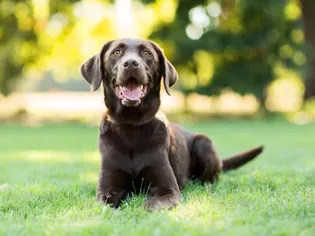Why Dogs Eat Poop and How to Stop Them
Updated on 05/27/24

Why Dogs Eat Poop and How to Stop Them
Coprophagy, the technical term for eating poop, is a common and often perplexing behavior in dogs. While it may seem like a harmless habit, it can pose health risks and create unpleasant situations for you and your furry friend. Understanding the reasons behind this behavior is crucial in finding effective solutions to stop it.
Causes of Coprophagy
1. Nutritional Deficiencies:
* Dogs with a diet deficient in certain nutrients, such as enzymes or B vitamins, may resort to eating poop to supplement their nutritional needs.
2. Medical Conditions:
* Gastrointestinal diseases, such as pancreatitis or liver disease, can cause digestive disturbances that lead to coprophagy.
* Dogs with diabetes may also eat poop due to the high sugar content in their urine, which attracts them.
3. Attention-Seeking Behavior:
* Some dogs engage in coprophagy to gain attention from their owners. If they notice that this behavior elicits a strong reaction, they may continue doing it to get the desired response.
4. Boredom or Anxiety:
* Dogs that are bored or anxious may resort to eating poop as a way to relieve stress or occupy their time.
5. Social Imitation:
* Puppies may learn this behavior from their mothers or other dogs in their social group.
Consequences of Coprophagy
1. Health Risks:
* Poop contains bacteria, parasites, and viruses that can cause gastrointestinal infections and other health problems.
* Dogs that eat cat poop are at risk of contracting toxoplasmosis, a potentially serious parasitic infection.
2. Odor and Sanitation:
* Coprophagy can lead to unpleasant odors and create unsanitary conditions in your home and yard.
3. Social Embarrassment:
* It can be embarrassing to have a dog that eats poop, especially in social situations or when guests are present.
How to Stop Coprophagy
1. Address Underlying Causes:
* If you suspect a medical condition or nutritional deficiency, consult with your veterinarian for proper diagnosis and treatment.
2. Manage Attention-Seeking Behavior:
* Ignore your dog's coprophagy completely. Do not scold or punish them, as this will only reinforce the behavior.
* Instead, praise them for appropriate elimination behavior and provide positive reinforcement with treats or playtime.
3. Provide Enrichment and Exercise:
* Ensure your dog has plenty of mental and physical stimulation through regular exercise, interactive toys, and training sessions.
* Bored dogs are more likely to engage in destructive behaviors, including coprophagy.
4. Use Deterrents:
* Apply a bitter spray or gel to your dog's poop to make it unappetizing.
* Use a retractable leash on walks to prevent them from accessing other dogs' poop.
* Pick up your dog's poop immediately after they eliminate to minimize the temptation.
5. Monitor and Reward:
* Supervise your dog closely during elimination time and reward them immediately after they eliminate appropriately.
* Consistency and patience are key to breaking this habit.
Conclusion
Coprophagy can be a challenging behavior to manage, but understanding the underlying causes and implementing effective solutions can help you stop it. By addressing medical issues, providing enrichment, managing attention-seeking behavior, using deterrents, and monitoring your dog's behavior, you can help your furry friend overcome this unpleasant habit and live a healthy and happy life.
Explore More Pets

Basic Training
Puppy and Baby Introductions

Working Dog Breeds
All About Search and Rescue Dogs

Dog Treatments
Puppy Vaginitis: Signs, Causes and Treatment

Dog Adoption
After More Than 1,200 Days in the Shelter, Coco Goes Home

Basic Training
How to Train Your Puppy to Go on Potty Pads

Hybrid Dog Breeds
The Difference Between a Mutt, Mixed Breed, or Designer Dog?

Dog Treatments
Nail Problems in Dogs

Puppies
7 Reasons Why Two Dogs Are Better Than One
